Top Five Performances of 2020
I had planned to take a pass on Chicago Classical Review’s annual Top Ten Performances (as we are doing on the rest of the Classical Review sites this year due to economics). The other main reason for doing so is obvious—due to the Covid-19 pandemic, live in-person performances were limited to the first quarter of the year.
A look through the CCR archive, however, showed that there were several exceptional performances in early 2020. And so it didn’t seem fair to turn the page on this plague year without giving praise where deserved.
So here are the Top Five Performances of 2020.
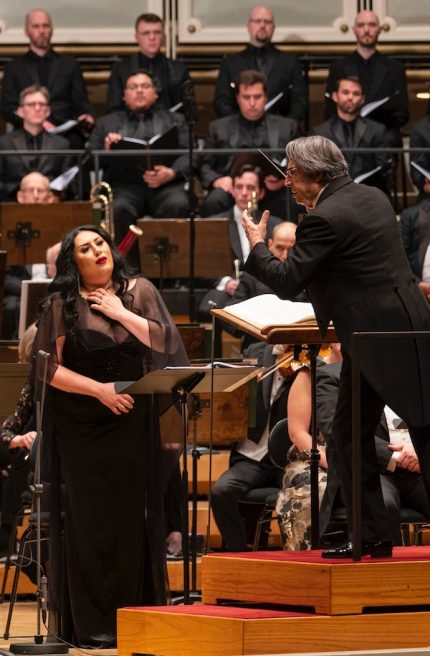
Riccardo Muti’s best nights as music director of the Chicago Symphony Orchestra often come with Italian opera. Such was the case again in February with an extraordinary concert performance of Pietro Mascagni’s Cavalleria Rusticana. With Anita Rachvelishvili as a scarily vengeful Santuzza leading a superb cast, Muti directed the orchestra and CSO Chorus in a sweeping, dramatic yet acutely detailed performance that brought out a myriad of nuances in Mascagni’s orchestration.
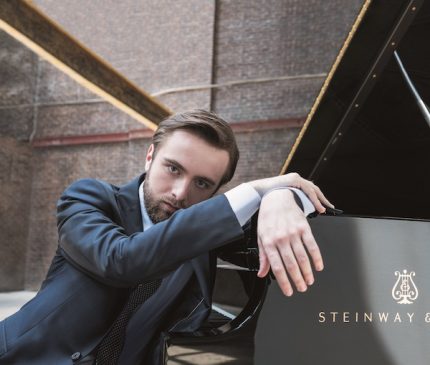
2. Daniil Trifonov. Bach: The Art of Fugue.
Daniil Trifonov’s March recital at Symphony Center provided a one-man rescue mission for Bach’s The Art of Fugue, a work still regarded in some quarters as an arcane intellectual exercise of the composer’s final years. Yet in the hands of this gifted Russian pianist, Bach’s complete score felt uncommonly fresh and wondrously alive—as if a long-lost Bach work had recently been discovered.
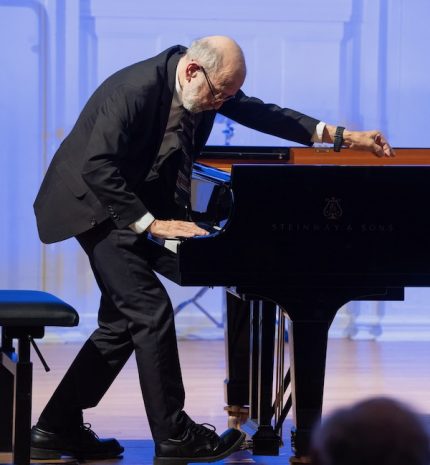
3. George Crumb Festival. Music Institute of Chicago.
I had to pass on personally reviewing the Music Institute of Chicago’s George Crumb Festival due to a conflict of interest (my foundation, the American Music Project, provided the grant that made the event possible). But I did attend and, as noted by my CCR colleagues, both concerts were discerningly programmed and received rich and resourceful performances by MIC faculty members. The two-night event made a timely and illuminating 90th birthday tribute to one of our most individual and iconoclastic composers.
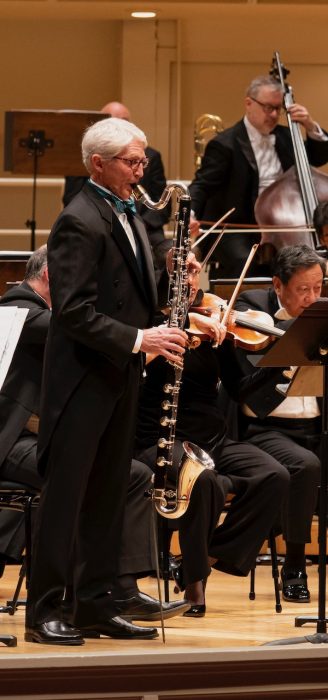
4. J. Lawrie Bloom with Riccardo Muti and Chicago Symphony Orchestra. Nicolas Bacri’s Ophelia’s Tears.
The Chicago Symphony’s longtime bass clarinetist retired this summer during the continuing coronavirus shutdown. In hindsight the timing seemed apt, coming after J. Lawrie Bloom’s triumphant final solo outing with the CSO in the world premiere of Nicolas Bacri’s Ophelia’s Tears. The concertante work is far from a virtuosic concerto showpiece with Bacri’s inward music reflecting Ophelia’s disordered mental state. The doomed girl’s vulnerability, shifting emotions and tragic end were rendered by Bloom with sterling advocacy, a wide range of expression and moving sensitivity.
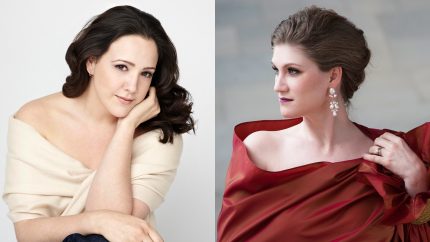
5. “Rival Divas.” Jane Glover and Music of the Baroque.
Jane Glover led a historically inspired program that drew on two pairs of real-life soprano rivals in music written for them by Handel and Mozart. In addition to providing the opportunity to hear some genuine rarities—including Mozart’s singspiel The Impresario— the cleverly conceived program blended scholarship and entertainment delightfully. Soprano Susanna Phillips sang gloriously and was hilarious, reveling in the dueling divas’ upstaging antics with colleague Jane Archibald.
Honorable Mentions
A highlight of the interrupted Beethoven 250 anniversary year was the generous evening of Beethoven piano trios performed by Yo-Yo Ma, Emanuel Ax and Leonidas Kavakos. Also notable were a rich, warmly moulded Brahms Second Symphony by the CSO led by the 92-year-old Herbert Blomstedt; the velocity and accuracy of Yuja Wang’s virtuosity; and the Escher Quartet’s intimate Debussy in a Chamber Music Society of Lincoln Center program.
Dishonorable Mentions
It wasn’t all champagne and roses before the pandemic hit and music halls and opera houses closed around the world.
The usually astute Chicago Opera Theater stumbled badly with Freedom Ride. One would think an opera based on the courageous Freedom Riders of the Civil Rights era would be a sure bet for compelling music drama. Sadly not with this show. Dan Shore’s light opera/musical has been bouncing around workshops for a decade but this COT world premiere showed Freedom Ride was still not ready for prime-time, with a stilted libretto, a score heavily reliant on pastiche and undeveloped characters that never rose above Lifetime Channel movie cliches.
Far worse was the latest installment in Lyric Opera’s ongoing stimulus program for untalented British directors. Richard Jones’ scabrous staging of The Queen of Spades wasted a stellar cast and trashed one of Tchaikovsky’s finest operas in the company’s first Pique Dame in two decades. The haunted gambler Gherman is here reduced to a spastic, grinning village idiot from the curtain and his beloved Lisa is merely a passive cringing neurotic. Jones, who was also responsible for destroying Handel’s Ariodante in 2019, reaches his nadir with the Countess’s ghostly apparition—played not for terror but for campy laughs as a giant skeleton in Gherman’s bed, which he embraces and kisses. Povero Tchaikovsky.
A note of thanks
The Covid-19 pandemic has, of course, proved devastating in its human toll around the world. The coronavirus has also been hugely damaging to the arts world with the necessary shuttering of opera houses, concert halls and recital venues creating massive financial losses for cultural institutions.
Like many small businesses, Classical Review has not been immune to the pandemic’s economic carnage, since we rely entirely on advertising to support the site’s maintenance and to pay our writers. No concerts or live performances means no advertising.
Fortunately, a few of our regular season advertisers have done what they could in this difficult time to maintain an ad commitment. My heartfelt thanks to our friends who reaffirmed their belief in our work and continued ad support for Classical Review—even as they are going through a challenging time themselves and still uncertain when live performances will return. Your support continues to be crucial in allowing us to hang on through this period until things return to some degree of normalcy.
Thank you to Music of the Baroque, the Illinois Philharmonic Orchestra, the Chicago Philharmonic, the North Shore Chamber Music Festival, the Evanston Chamber Music Festival and New Music Chicago.
My gratitude also goes to the New World Symphony, Seraphic Fire, Utah Symphony and Utah Opera, the Frost School of Music at the University of Miami, Orchestra Miami, Kaleidoscope MusArt, Wolf Trap, Vocal Arts DC, the Candlelight Concert Society, and Hemsing Associates.
Posted in Performances



Posted Dec 25, 2020 at 12:27 pm by John Fischer
I fully agree that the Mascagni performance was the greatest thing I’ve heard in some time. And sadly, as you rightly note, the Lyric again moved forward in its campaign to alienate the Chicago audience that has loved it for decades.
Posted Jan 09, 2021 at 11:45 am by Owen Youngman
We were at 4 of your top 5 (not Crumb), but I think one omission … at least an honorable mention … might have been the Beethoven cycle at the Harris led by John Eliot Gardiner. Thanks for providing the list to summon the recollections